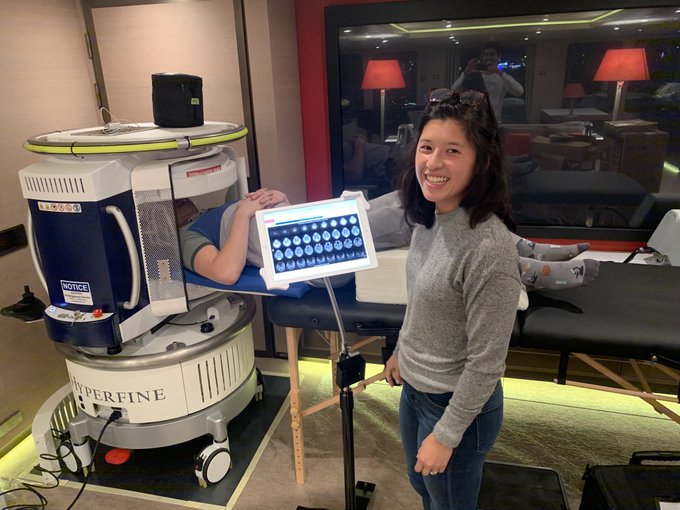Source: Thailand Medical News Nov 28, 2019 6 years, 2 months, 2 weeks, 5 days, 20 hours, 54 minutes ago
Dr Jonathan Rothberg, a Yale University adjunct professor of genetics and a serial inventor from Connecticut has come up with a portable
MRI intended, like his other devices, to make health care more affordable and accessible.

Dr Rothberg who had previously developed and commercialized high-speed DNA sequencing, said a smaller and portable
MRI used to scan the
brain and other parts of the body will reduce the cost of a conventional
MRI. In addition, it can be brought to the patient rather than delivering sick patients to the machine.
Dr Rothberg told
Thailand Medical News via a phone interview, "It's a natural progression and basic desire of the 4 billion people of the world that don't have access to an
MRI. It's a basic desire to bring equality to health care."
MRI or
Magnetic resonance imaging scans show the difference between healthy and diseased tissue, and can provide information about the brain, spine, joints and internal organs, leading to early detection and treatment of disease. It's particularly useful for finding a problem in the brain, a complicated organ encased behind the skull, a dense barrier made of bone.
For example, an ultrasound, can provide important and useful information about the ankle, said Dr Kevin Sheth, a professor of neurology and neurosurgery at the Yale School of Medicine, which is using the portable
MRI in clinical settings. "With the brain, that's not the case," he said. "The thickness and composition of the skull is a huge barrier to those technologies."

The scans of
MRI allows physicians and researchers to look at the brain in ways that can detect the impacts of a stroke, head trauma, bleeding and multiple sclerosis, Dr Sheth said. "It can look past the skull and tell us something about the brain tissue," he said.
Dr Rothberg's work is part of a pattern in which he develops and supports life science and medical device companies such as Hyperfine Research, which developed the portable
MRI, to make medicine more widely available. He said the portable
MRI was developed at a cost of more than $70 million. "We reinvented it from scratch."
Typically,
MRIs are large machines kept in a separate part of a hospital and using a strong magnetic field and radio waves to create detailed images of the body's organs and tissues. The devices are operated by clinicians and require patients, sometimes hobbled by mobility problems, to be delivered for treatment.
Dr Sheth commented, "Transporting sick patients is not a trivial thing. Instead, a portable
MRI is brought to patients in their hospital rooms, allowing friends and family to be pre
sent. It flips the whole concept on its head.”
Furthermore, the cost of a portable
MRI, at $50,000, is a fraction of the $1 million or more a machine now costs, making it possible for more hospitals, medical centers and other sites to operate the machines, delivering care to a greater number of patients.
The US FDA is reviewing the portable
MRI, with clearance expected in 2020, Rothberg said. With FDA approval, Hyperfine will offer it for sale to hospitals, medical practitioners, rehabilitation centers and other medical sites, even sporting events where head injuries can be detected, Dr Rothberg said.
Many medical professionals are enthusiastic about the new
MRI, calling it a revolutionary change in how, where and when researchers and medical practitioners can study the brain. Its also going to revolutionize healthcare approaches as more people can have access to the affordable version.

